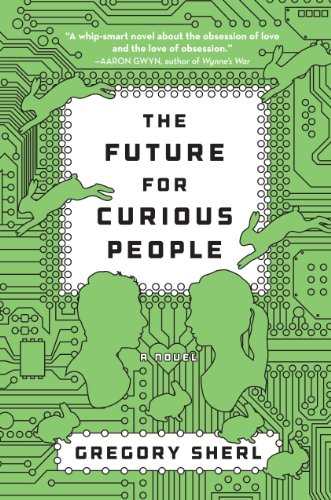Make It So? 5 Indie Books With Tech We Wish We Had Now
Technological advances are more than often preceded and inspired by creative imaginings in science fiction novels. Orson Scott Card dreamed up touch screens in Ender’s Game before they were actually developed. Scientists at the University of Texas at Austin are working on creating Harry Potter’s invisibility cloak. Scientists think they may have recently cracked the code of teleportation. And Shadow Robot Co.’s bionic man is eerily reminiscent of Frankenstein … or at least an android. The tech in these five books prove that a writer’s imagination can trump that of an engineer. Google Glass has nothing on these.

The Future for Curious People by Gregory Sherl (Algonquin Books)
Hopeless romantics can look into a machine to learn about their potential futures with various partners to know if they’re choosing the right one. It’s eHarmony on steroids.

Bliss by Lisa Henry and Heidi Belleau (Riptide Publishing)
The behavior-modifying chips implanted into the brains of one city-state’s citizens make them unable to disobey orders. Sounds like the beginnings of a scary police state, or a mechanical military endeavor.

The Quantum Breach by Denver Acey (Bonneville Books)
Cyber-terrorists are using a quantum computer to hack into thousands of networks in this thriller. With hacker as hero, this book and its tech will have you hyperaware of cybercrime.

The Children Who Time Lost by Marvin Amazon (Corinthians Publishing)
An infertility epidemic has all but wiped out the human race, but time travel allows would-be parents to adopt children from the future. Meta moms and dads here show that we can use technology to fulfill our yearnings and to solve social problems in tandem.

Living Forever by Jan Fawcett (iUniverse)
Like Johnny Depp’s character in the film Transcendence, this dying man transfers his consciousness into a computer chip. Here, though, he doesn’t die, leaving his mind cloned: one in his physical body, one in the chip. It’s an identity crisis gone digital.
Aimee Jodoin
